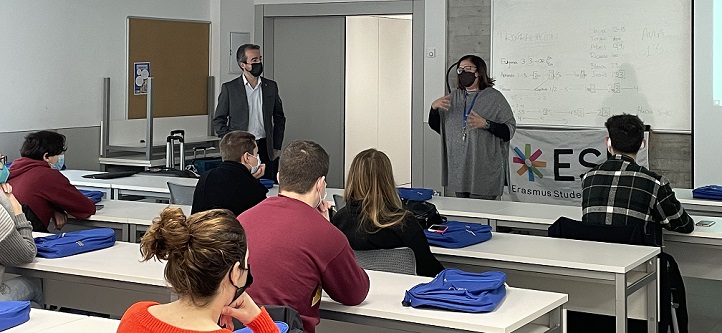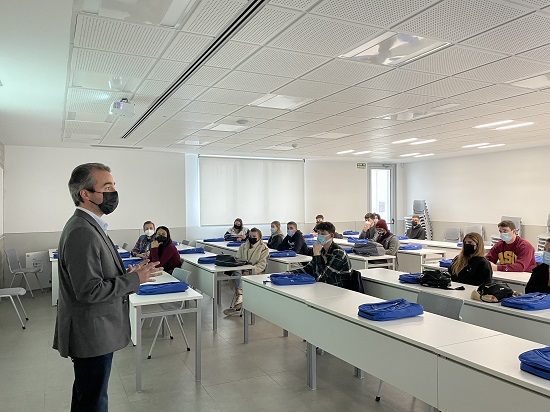Juan Luis Vidal Mazón, director of the International Relations Office of the European University of the Atlantic welcomed nearly forty new international students who will be joining the campus dynamics in the second quarter of the year as part of the Erasmus + program. Students from Europe will study at the University for a period through this mobility program, which has also been extended to some Latin American countries thanks to agreements established with some universities in continent.
At the meeting, the students had the opportunity to learn more about the university and their routines for the second half of the academic year. Among these guidelines, they have been presented with the schedule of classes for the next term.
Professor Juan Luis Vidal also emphasized the multicultural character of the university, which is a fundamental pillar of the institution and an important advantage in students’ education. In fact, 30% of students in UNEATLANTICO are from different parts of the Spanish geography, complemented with a wide international representation.
The academic director of the Degree in Translation and Interpreting and the Degree in Applied Languages, Dr. Araceli Alonso Campo, also welcomed students from such countries as Argentina, France, and Germany. He then invited them to break the ice and meet new students so that, apart from establishing new relationships and acquiring personal skills, they could improve their language skills. The university will conduct a language level test in the coming days to offer more personalized learning based on the results obtained.
Lastly, both Dr. Araceli Alonso and Professor Juan Luis Vidal stressed the possibility of seeking help from UNEATLANTICO to answer any questions or setbacks that may arise during the student’s stay on campus.
The European University of the Atlantic is characterized by its internationalization policy, promoting the participation of members from the university community in exchange, cooperation, and mobility programs between the different countries that make up the European Union through the Erasmus + agreements and the rest of the world through bilateral agreements.



